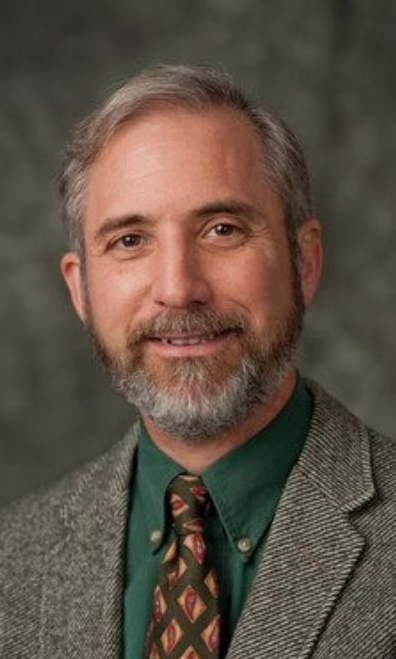What are the three main reasons you are running for this office? Do you see any potential conflicts of interest?
I have a broad-based, 36-year law practice that has included more than 117 appellate cases involving, civil, criminal, family, and probate law. My practice has consisted of handling almost every kind of case that is heard by the 9th Court of Appeals. I have more than 140 jury trials which consist of about one-half civil trials and one-half criminal trials (mostly as a prosecutor) and those are all the kinds of cases appealed to this court. I have completed hundreds of non-jury trials dealing with the issues that come before the Court of Appeals. I believe this has prepared me to stand in the shoes of the litigants when determining on the appeal whether a fair trial was had according to the Rules of Evidence and the Law.
Please describe the best way for the average voter to determine which judicial candidate is best.
Voters should look at the court and what it does. Then, compare the experience of the candidate to see if it matches up. Finally, try to determine the candidate's judicial philosophy (i.e. conservative, liberal, originalist who follows the original intent of writers of the constitution or legislation).
Please describe what you believe are the most significant issues in this race, why and what you'll do to address them?
The protection of our constitutional rights is more important than ever. This pandemic has show us that. The lurch to the left our courts have taken in the last 50 years is a result of intentional actions by leftist activists who have been appointed or eleceted to our appellate courts. I want to bring the "originalist" philosophy to our appeals Court in the same manner that Justice Antonin Scalia and Justice Clarence Thomas have brought this philosophy to the Supreme Court.
How relevent today is Blackstone's maxim "All presumptive evidence of felony should be admitted cautiously; for the law holds it better that ten guilty persons escape, than that one innocent party suffer".
With political prosecutions on the rise (see what they're doing to Donald Trump, Steve Bannon, and others), it is more important than ever that the legal standard of "proof beyond a reasonable doubt" be firmly upheld in criminal prosecutions. Our governments have tremendous power and must be held to the highest burden. Once proven, justice should be swift and firm.
Understanding that all courts in MoCo have general jurisdiction, the board of judges has moved towards specialized courts. What types of cases are currently filed in the court you are running for? What is your experiences to handle this specific case type? Are you planning on asking to change the case allocation or case type assigned to the court you are running for if you win?
Our Texas intermediate Courts of Appeals are general jurisdiction courts that hear all appeals as a matter of right from the County and District Courts. The courts don't specialize until the final appeal phase in which the Court of Criminal Appeals hears criminal matters only and the Texas Supreme Court hears civil cases only. I would like to keep the Courts of Appeals general jurisdiction as they are now. In my 36-year career I have handled civil, family, criminal, probate and other types of cases...all of which are heard by this Court of Appeals.
What carries the greatest influence on your rulings: case law, the Constitutions, or other?
The Constitutions, first and foremost, because all statutory authority must rest on a provision of the Constitution. The statutes should be interpreted as intended by the Legislature, just like the Constitution, and case law should be reviewed to determine whether prior courts have decided a question on point. I will follow well-established case law so that the laws can be enforced consistently.
Please describe the major challenges for your court over this next term.
With the recent retirement of Chief Justice McKeithen, replaced by Scott Golemon, and now Place 2 Justice Charles Kreger retiring, that's two of the four Justices on the Court who each will have served 18 years. I think adjusting with the existing staff and current Justices will be the major challenge for me over the next term.
Do you think judges should be elected by the people, or appointed by a commission?
Elected by the people.
In your view, what is the threshold for determining constitutionality of a legislative act? or a challenge to it?
You have to look at the original intent of that constitutional provision upon which the legislative act is based to see if the law accomplishes the intended purpose. Then you have to see how the law is being applied in each case to determine whether its application violates any provision of the state or federal constitutions. You can look at legislative history, prior case law interpretation of the statute, or similar statutes, and how they've been interpreted by the Supreme Court.
To what extent do you believe the state or federal government should be able to obtain court orders directing parents to do things for their children that the parent does not believe should be done?
The state or federal government should not be involved in decisions parents make for their children. The government should only step in to the extent necessary, and only for as long as necessary, to prevent death or permanent, serious injury to a child. Parents should decide whether to vaccinate their child, whether medical procedures should be done, what type of education their child should have, and what books their child will be taught from in school!
Among the nine justices on the U.S. Supreme Court(SCOTUS), which one do you respect the most, and why? Which one do you respect the least, and why? What judicial philosophy should a SCOTUS Justice have?
Clarence Thomas is my favorite on the Supreme Court right now because he is following the lead of Antonin Scalia by promoting the original intent of the Constitution. I think Justice Elena Kagan is my least favorite because she seems to believe the Constitution means whatever she wants it to mean to justify the end result. She is a part of the problem. We neeed more Justices who will follow the original intent of the Founders, as amended, to stop the government power creep of the last 60 years!
CSPOA says "Civil forfeiture laws pose one of the greatest threats to property rights in the nation today. They encourage law enforcement to favor the pursuit of property over the pursuit of justice, and they typically give the innocent little recourse for recovering seized property. And without meaningful transparency, law enforcement faces little public accountability for its forfeiture activity or expenditures from forfeiture funds." How should these Civil Forfieture issues be addressed?
Civil Asset Forfeiture laws started off with a valid goal: take the assets from the criminals that are from ill-gotten gain. However, they were written broadly to capture organized criminal activity and, when applied too broadly, they are capturing assets from "Mom and Pop" businesses in some cases. The legislature needs to address these issues by tightening up the law and requiring accountability by those Agencies who seize the property.
What 2 things about your opponent do the voters need to know?
She is a very fine individual and she works hard!
What Texas State court decision do you think has most impacted society? How and Why?
I think the Edgewood I.S.D. v. Kirby case, decided by the Texas Supreme Court in 1989, caused a massive re-shuffling of public school funding that still has not settled down to this day. While finding that the then-existing educational funding system violated the Texas Constitution, the remedy was left, rightly so, up to the Legislature to provide more equitable funding so that the Texas Constitution is complied with. That decision affected every family in Texas because every school district was impacted, for good or bad, and we are still dealing with the solution.
Apparently in conflict with current pratice in the courts Art. 19.27. of the Texas Code of Criminal Procedure states "ANY PERSON MAY CHALLENGE. Before the grand jury has been impaneled, any person may challenge the array of jurors or any person presented as a grand juror. In no other way shall objections to the qualifications and legality of the grand jury be heard. Any person confined in jail in the county shall upon his request be brought into court to make such challenge." What is the practical application of this statute?
I see that this provision was repealed, effective 1/1/2021. It is now memorialized in Code of Criminal Procedure Article 19A.151, et seq. Grand jurors are now randomly selected the same a jurors are called for jury duty. The idea behind the law is to prevent rigged Grand Juries, insane persons, incapacitated persons, or persons who have a fatal conflict of interest in matters brought before the Grand Jury from serving on the Grand Jury. The catch is to know when the Grand Jury is being empaneled, and where, so that those called in can be challenged if one of the listed criteria for challenge exists. Practically speaking, inmates are not going to know when and where the Grand Jurors will be brought in. The only safety valve I see is the mandatory "recusal" provision (19A.253) that states a Grand Juror who is not qualified to serve under the listed criteria must recuse himself or be subject to contempt of court.
As a judge, what do you believe the goals of the criminal justice system should be?
The goal of the criminal justice system is to prevent crime. There are many ways this is done: strong sentences provide a general and specific deterrent to the public at large and to individual offenders in particular. Probation provides rehabilitation for youthful offenders or substance abusers to deter future criminal activity. Mental Health Courts and Veteran's Courts provide specialized approaches to prevent offenders from re-offending. One size does not seem to fit all or else a computer could issue out the sentences and you wouldn't need judges.
Who is endorsing you and what is their relationship to you?
At this point in time, I have not received endorsements from any organizations. Many friends and associates are endorsing my candidacy.



